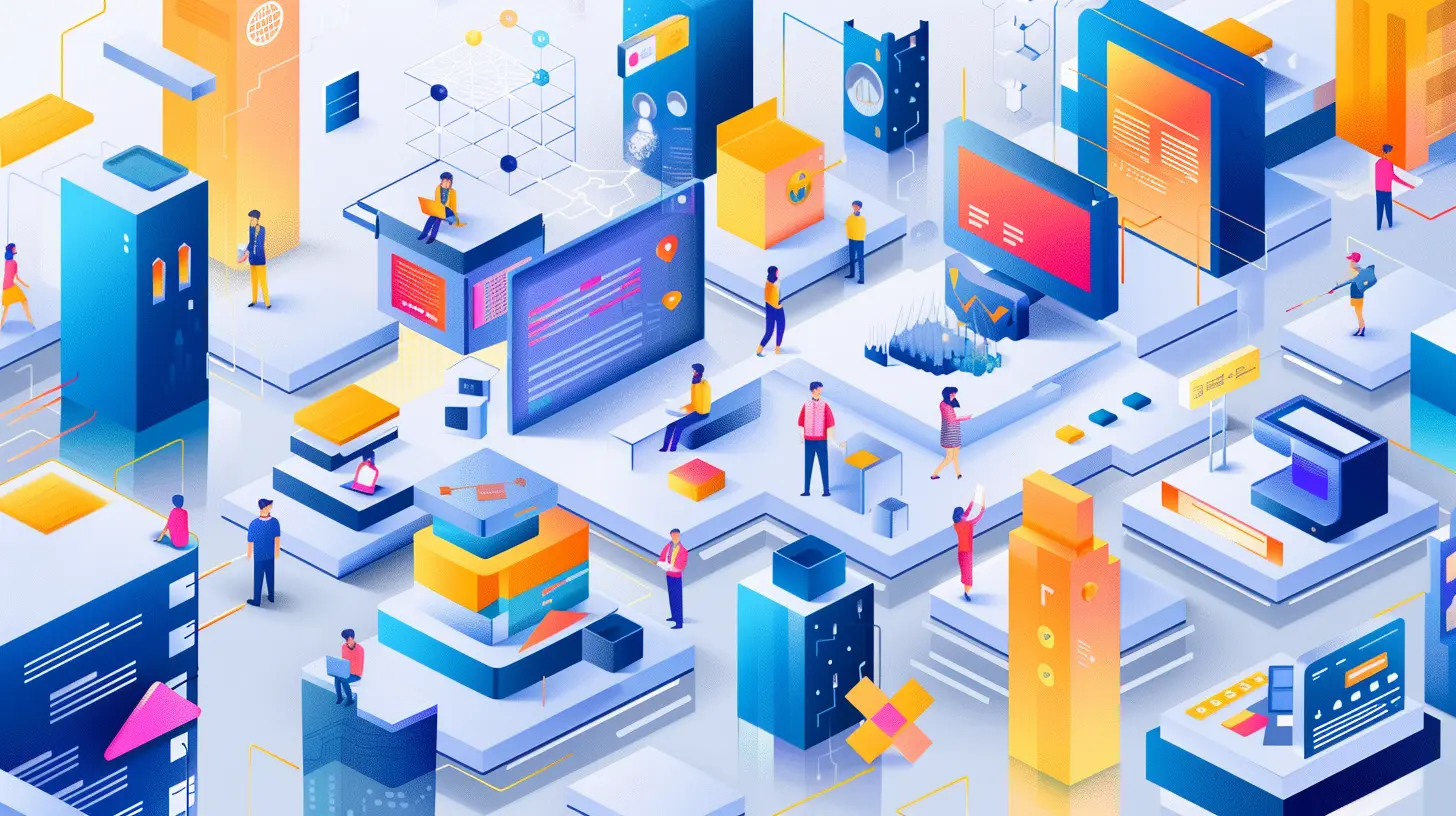How Startups are Redefining Innovation in Traditional Industries
31 May 2025
If there’s one thing startups are known for, it’s shaking things up. Whether it's challenging the status quo or creating entirely new ways of doing business, startups have become the unsung heroes of disruption. But here’s the real kicker: they’re not just sticking to shiny new industries like tech and fintech—they’re diving headfirst into traditional industries that haven’t seen much innovation in decades.
Think about it. When was the last time you heard about a groundbreaking innovation in farming, manufacturing, or logistics? Probably not too often. But now, scrappy startups are rolling up their sleeves, bringing fresh ideas, cutting-edge technology, and a whole lot of ambition to these so-called "old-school" industries. And guess what? It’s working.
So, how exactly are startups redefining innovation in traditional industries? Grab a coffee (or tea—no judgment here) because we’re about to break it all down. 
Why Traditional Industries Need a Refresh
Let’s face it—many traditional industries have gotten… stuck. They’ve been doing things the same way for years, sometimes decades. And while that might work for a while, the world doesn’t stop evolving. Consumer expectations change, technology advances, and global challenges emerge.For example:
- Agriculture: With climate change and a growing global population, traditional farming methods aren’t cutting it anymore.
- Manufacturing: The rise of automation and AI is making old-school production lines look, well, outdated.
- Transportation: While the world moves toward sustainability, many transportation systems are still running on outdated, polluting technologies.
The truth? Sticking to the “if it ain’t broke, don’t fix it” mentality is a surefire way to fall behind. That’s where startups come in. 
What Makes Startups So Good at Innovation?
Here’s the thing about startups: they don’t have the baggage that large corporations do. They’re not tied down by years of “this is how we’ve always done it.” Instead, they thrive on fresh thinking, experimentation, and adaptability.Startups have three key ingredients that make them perfect for disrupting traditional industries:
1. Agility: They can pivot quickly. If something doesn’t work, they try something else. No endless board meetings, no red tape.
2. Technology-First Approach: Startups are often built around technology, which gives them an edge when modernizing outdated systems.
3. Customer-Centric Mindset: They live and breathe solving problems for their customers, often uncovering pain points that bigger companies overlook.
It’s like they’re the underdogs in a high-stakes game. And let’s be honest, who doesn’t root for the underdog? 
Examples of Startups Disrupting Traditional Industries
Alright, enough theory. Let’s get into the juicy stuff: real-world examples.1. Agriculture: Precision Farming is the New Norm
Traditional farming? Think tractors, soil testing, and praying for rain. Enter startups like Indigo Ag and Farmers Edge, and suddenly, farming looks like something out of a science fiction movie.These startups are leveraging everything from AI to IoT (Internet of Things) to create something called “precision agriculture.” Essentially, they’re helping farmers monitor their crops in real time, optimize water usage, and even predict harvests with stunning accuracy.
It’s like giving farmers a crystal ball—except it’s powered by data instead of magic.
2. Manufacturing: The Rise of Smart Factories
Factories have always been the backbone of manufacturing. But let’s be real, many of them are still running on outdated tech from the 80s.Enter startups like Bright Machines and Fictiv, which are turning traditional factories into “smart factories.” These companies are combining robotics, AI, and cloud computing to streamline production.
Think of it like upgrading from a flip phone to the latest smartphone—it’s faster, smarter, and way more efficient. And the best part? It’s not just about making more stuff; it’s about making better stuff with less waste.
3. Healthcare: Making Patient Care Personal Again
The healthcare industry is notoriously slow to change. But startups like Zocdoc and Carbon Health are turning that narrative on its head.These companies are focused on making healthcare more accessible and personalized. For instance, Zocdoc is simplifying the process of finding a doctor and booking appointments (no more waiting on hold for 20 minutes). Meanwhile, Carbon Health is rethinking primary care with tech-driven clinics that emphasize convenience and transparency.
It’s healthcare on your terms—finally.
4. Transportation: Moving Towards Sustainability
Traditional transportation has always been about moving people or goods from Point A to Point B. But with climate change breathing down our necks, startups are stepping in with something better.Take Rivian, for example. They’re not just making electric vehicles—they’re redefining what a “sustainable adventure” looks like. On the other hand, Convoy is shaking up freight shipping by using algorithms to reduce empty trucks on the road, cutting down on emissions and costs.
It’s like solving a Rubik’s Cube: tricky, but incredibly satisfying once you get it right. 
Challenges Startups Face When Taking on Traditional Industries
Of course, it’s not all sunshine and rainbows. Disrupting traditional industries is hard work, and startups face their fair share of hurdles.1. Regulatory Roadblocks
Many traditional industries are highly regulated—and for good reason. But for startups, navigating these regulations can feel like wading through quicksand.2. Resistance to Change
Let’s be honest: not everyone loves change. Convincing long-standing players in these industries to try something new can be like persuading your grandparents to ditch their landline for a smartphone.3. Funding Constraints
Traditional industries often require significant upfront investment. Whether it’s developing new tech or scaling operations, startups need deep pockets to truly make an impact.Why This Matters for the Future
So, why should you care about startups disrupting traditional industries? Simple. These innovations aren’t just about making things faster or cheaper—they’re about solving real-world problems in ways we never thought possible.Want food that’s sustainably sourced? Check.
Need faster medical care? Yep.
Hoping for cleaner air? Absolutely.
The ripple effect of these changes is massive, and it’s not just about profits—it’s about creating a better, more sustainable world.
Final Thoughts
Startups might be small, but they’re mighty. By challenging the status quo and thinking outside the box, they’re injecting much-needed innovation into traditional industries. And the best part? They’re just getting started.Whether it’s reimagining agriculture, manufacturing, healthcare, or transportation, startups are proving that no industry is too “old” to evolve. Who knows? The next big breakthrough might just be happening in an industry you never expected.
all images in this post were generated using AI tools
Category:
InnovationAuthor:

Susanna Erickson
Discussion
rate this article
2 comments
Margaret McElveen
Great insights! It's inspiring to see how startups are challenging conventional practices and driving innovation in traditional industries. Excited to witness this transformative journey unfold!
June 7, 2025 at 4:57 AM

Susanna Erickson
Thank you! I’m glad you found it inspiring. It's exciting to see how startups are truly reshaping the landscape!
Daria Newman
Startups challenge the status quo by infusing agility and creativity into traditional industries, revealing that true innovation lies not just in technology, but in mindset transformation.
June 1, 2025 at 2:47 AM

Susanna Erickson
Absolutely! Startups are indeed driving innovation by reshaping mindsets and introducing fresh approaches that challenge conventional norms.


